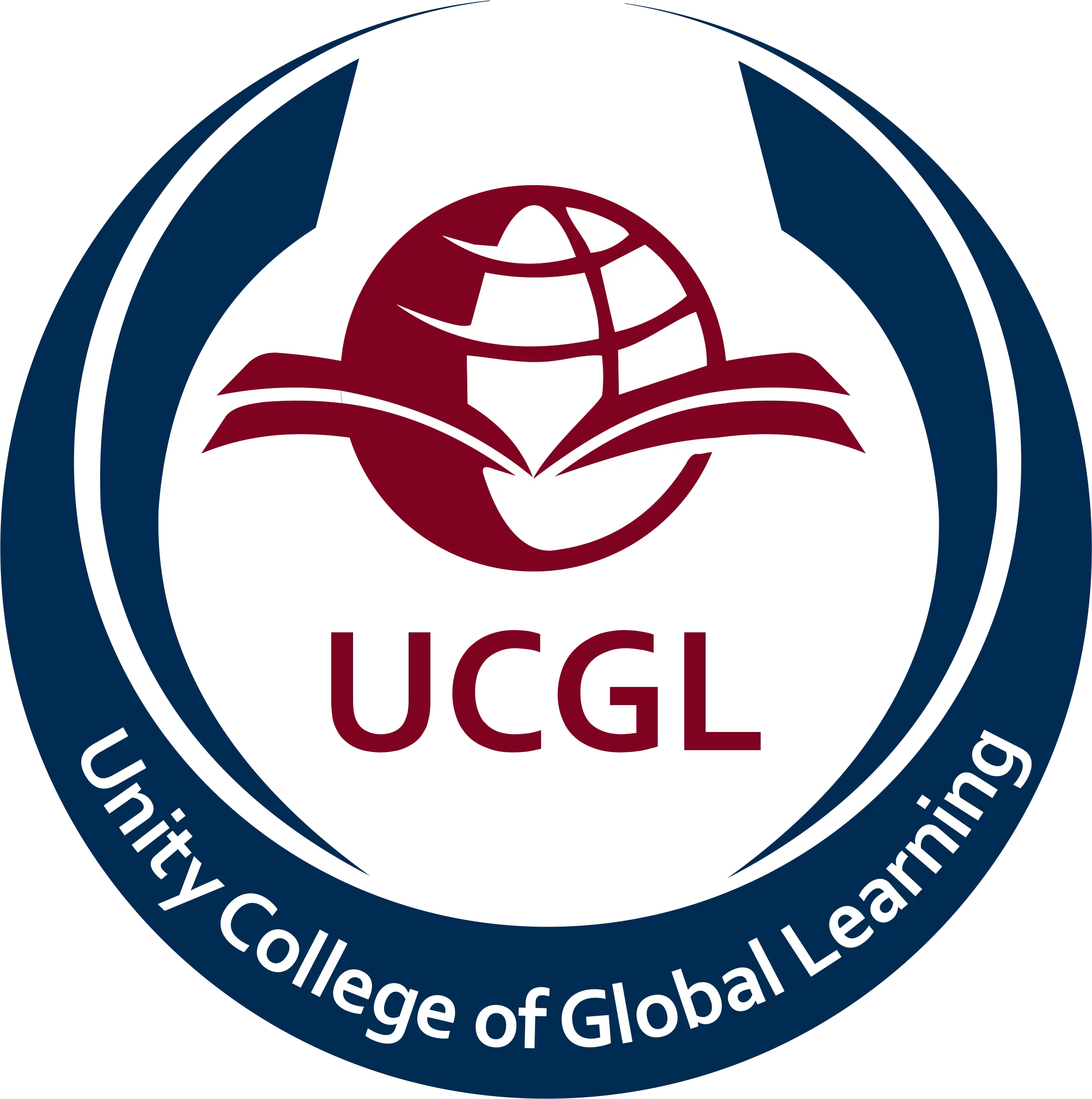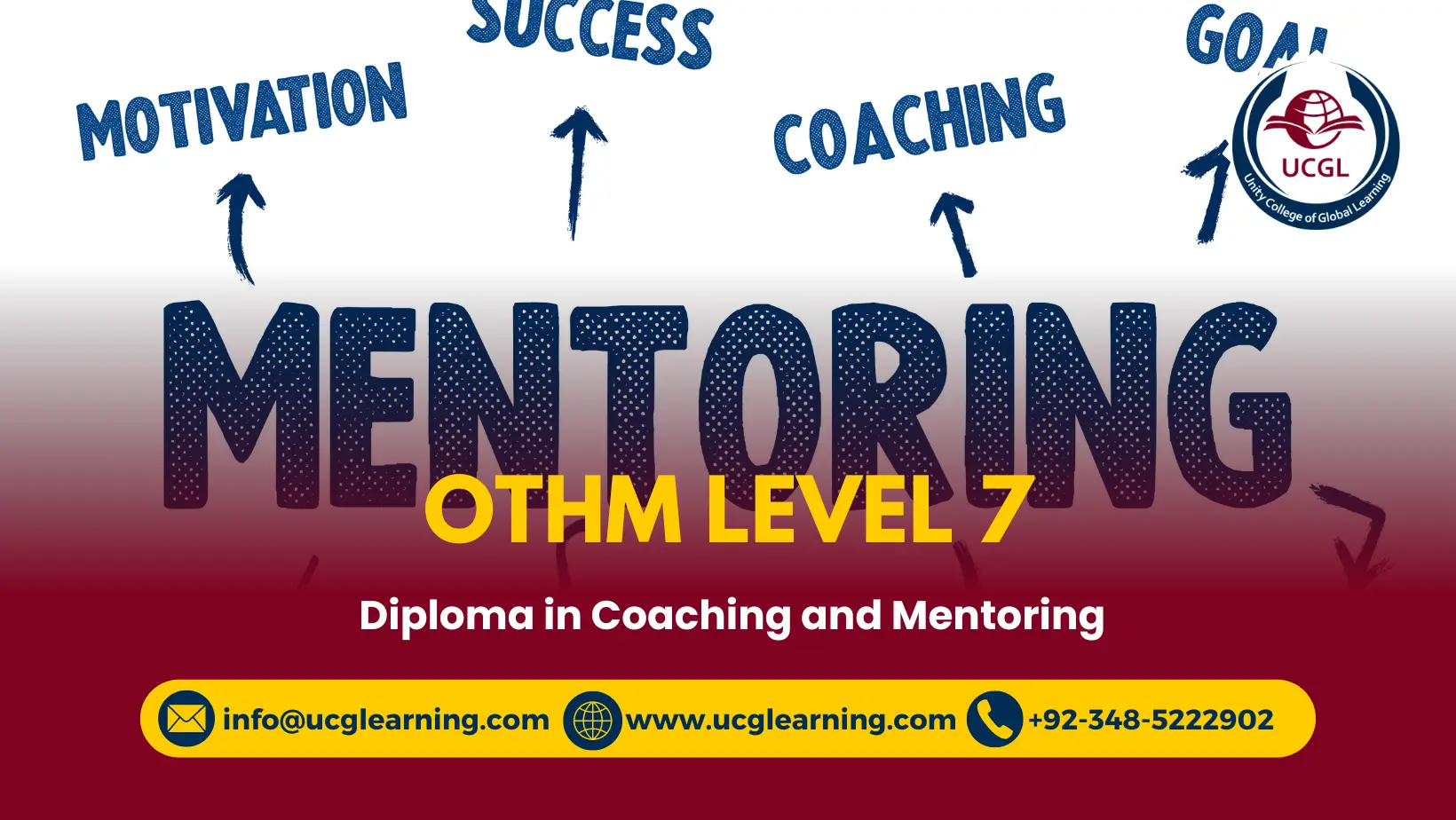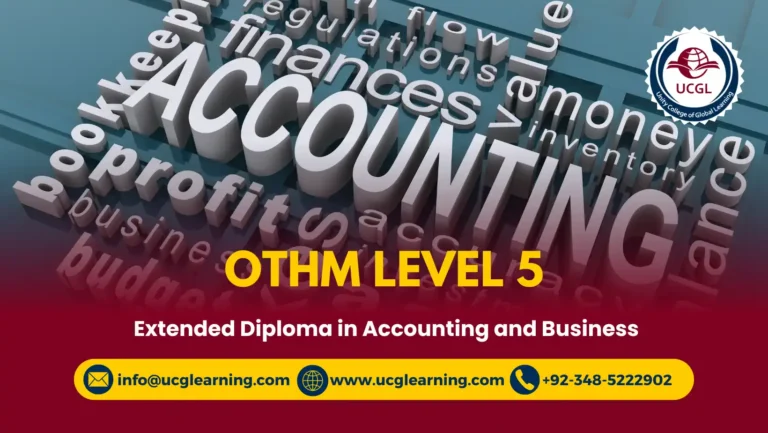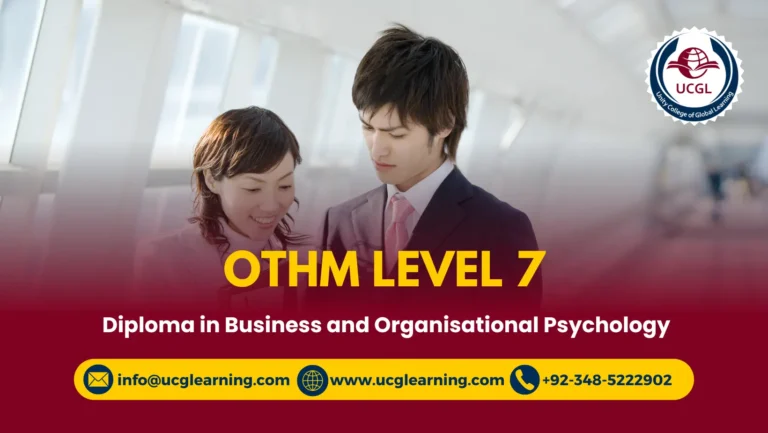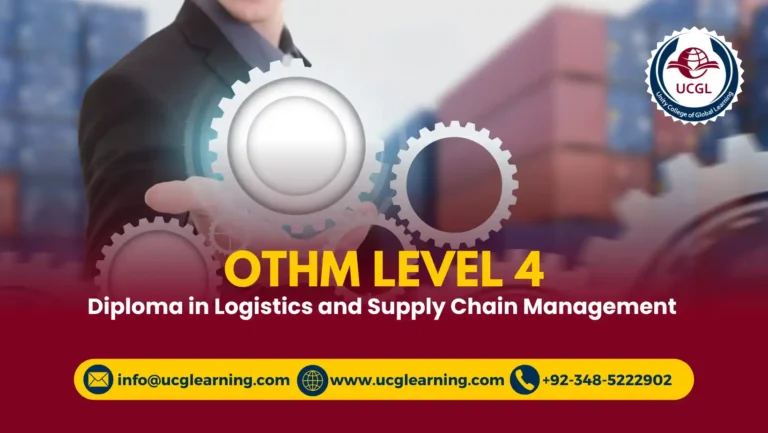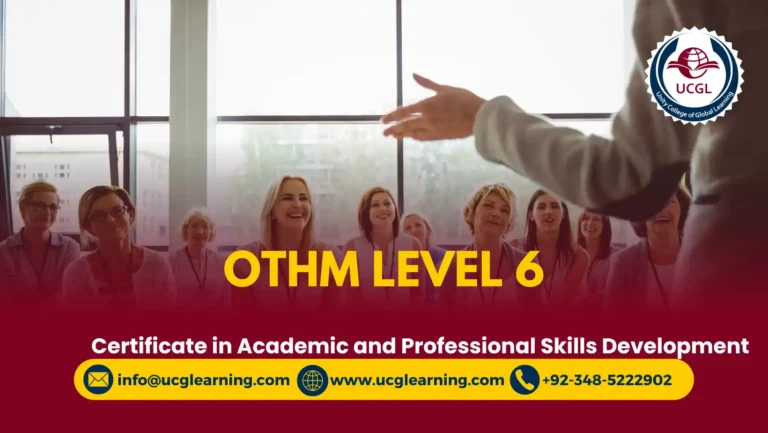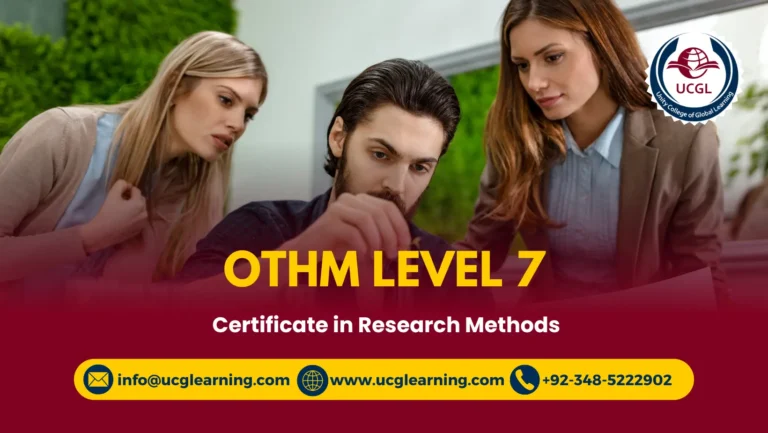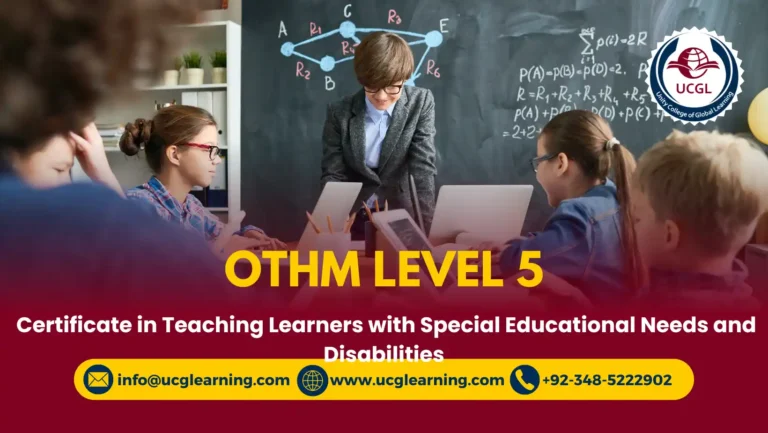OTHM Level 7 Diploma in Coaching and Mentoring
The OTHM Level 7 Diploma in Coaching and Mentoring is a transformative program designed for individuals passionate about guiding others towards personal and professional development. This diploma equips participants with advanced coaching and mentoring skills, preparing them to make a profound impact as effective coaches, mentors, and leaders in diverse organizational settings.
Course Introduction
The OTHM Level 7 Diploma in Coaching and Mentoring focuses on developing expertise in coaching and mentoring methodologies, theories, and practices. Participants delve into topics such as leadership development, emotional intelligence, and fostering a supportive learning environment. The program emphasizes practical application, equipping individuals with the tools to facilitate positive change and growth in others.
Course Benefits
- Advanced Coaching Skills: Gain in-depth knowledge and practical skills in coaching and mentoring techniques.
- Personal and Professional Development: Enhance your own leadership and interpersonal skills through reflective practice.
- Impactful Leadership: Develop capabilities to inspire and empower others, fostering a culture of continuous improvement.
- Career Advancement: Open doors to leadership and advisory roles in coaching, mentoring, and talent development.
- Organizational Effectiveness: Contribute to organizational success by cultivating a coaching culture that supports employee growth and engagement.
Course Study Units
- Theories and Concepts of Coaching and Mentoring within Organisational Culture (20 credits)
- Evaluating the Strategic Impact of Coaching and Mentoring (20 credits)
- Establishing Coaching and Mentoring in the Organisation (20 credits)
- Organisational Change Strategies and Personal Development (20 credits)
- Coaching, Mentoring and Managing Organisational Culture and Behaviour (20 credits)
- Research Methods for Coaching and Mentoring (20 credits)
Learning Outcomes
Theories and Concepts of Coaching and Mentoring within Organisational Culture (20 credits)
- Understand Coaching and Mentoring Theories: Analyze various theoretical frameworks and models relevant to coaching and mentoring within organizational contexts.
- Apply Concepts to Organizational Culture: Apply theories and concepts to assess and enhance organizational culture through coaching and mentoring practices.
- Promote Leadership Development: Facilitate leadership development through coaching and mentoring initiatives aligned with organizational values and goals.
- Enhance Employee Engagement: Utilize coaching and mentoring to enhance employee engagement, motivation, and job satisfaction.
- Evaluate Effectiveness: Evaluate the effectiveness of coaching and mentoring programs in fostering a supportive and growth-oriented organizational culture.
Evaluating the Strategic Impact of Coaching and Mentoring (20 credits)
- Strategic Alignment: Align coaching and mentoring initiatives with organizational strategic objectives and goals.
- Impact Assessment: Assess the strategic impact of coaching and mentoring on organizational performance, employee development, and retention.
- Measurement Metrics: Develop and implement metrics to measure the ROI and effectiveness of coaching and mentoring programs.
- Continuous Improvement: Identify opportunities for continuous improvement and adaptation of coaching and mentoring strategies based on strategic outcomes.
- Communicate Findings: Communicate findings and recommendations to stakeholders to support strategic decision-making and organizational development.
Establishing Coaching and Mentoring in the Organisation (20 credits)
- Implementation Strategies: Develop strategies for introducing and embedding coaching and mentoring programs within organizational structures.
- Stakeholder Engagement: Engage key stakeholders to garner support and commitment for coaching and mentoring initiatives.
- Training and Development: Design and deliver training programs for coaches, mentors, and participants to ensure program effectiveness.
- Integration with HR Practices: Integrate coaching and mentoring with HR practices such as performance management and talent development.
- Sustainability: Establish mechanisms to sustain coaching and mentoring initiatives long-term, ensuring ongoing support and impact.
Organisational Change Strategies and Personal Development (20 credits)
- Change Management Principles: Apply change management principles to facilitate personal and organizational development through coaching and mentoring.
- Adaptation and Resilience: Foster individual and organizational adaptation and resilience in response to change through coaching and mentoring interventions.
- Skill Development: Develop skills and competencies needed for effective leadership, communication, and collaboration within changing organizational contexts.
- Employee Empowerment: Empower employees to take ownership of their development and contribute to organizational change initiatives.
- Monitor Progress: Monitor and evaluate the progress of personal development and organizational change efforts facilitated through coaching and mentoring.
Coaching, Mentoring and Managing Organisational Culture and Behaviour (20 credits)
- Culture Transformation: Lead efforts to transform organizational culture and behavior through coaching and mentoring interventions.
- Behavioral Change: Facilitate behavioral change among employees and teams to align with organizational values and objectives.
- Conflict Resolution: Resolve conflicts and enhance collaboration within teams through coaching and mentoring approaches.
- Ethical Leadership: Demonstrate ethical leadership practices in managing organizational culture and behavior through coaching and mentoring.
- Cultural Competence: Develop cultural competence to effectively coach and mentor individuals from diverse backgrounds and organizational contexts.
Research Methods for Coaching and Mentoring (20 credits)
- Research Design: Design and develop research projects focused on coaching and mentoring using appropriate methodologies.
- Data Collection: Collect, analyze, and interpret qualitative and quantitative data related to coaching and mentoring practices.
- Literature Review: Conduct comprehensive literature reviews to inform research design and contribute to knowledge development in coaching and mentoring.
- Ethical Considerations: Address ethical considerations in coaching and mentoring research, ensuring research integrity and participant well-being.
- Research Contribution: Present research findings effectively through written reports and presentations suitable for academic and professional audiences.
These learning outcomes equip participants with advanced skills and knowledge in coaching and mentoring, enabling them to drive organizational change, enhance leadership effectiveness, and foster a supportive and growth-oriented organizational culture.
Who is This Course For?
The OTHM Level 7 Diploma in Coaching and Mentoring is suitable for:
- Leaders and Managers: Seeking to enhance their leadership capabilities and support their teams’ development.
- HR and Learning Professionals: Responsible for talent development and succession planning within organizations.
- Independent Coaches and Mentors: Looking to formalize their skills and gain recognition in the field.
Future Progression
Completion of this diploma opens doors to various career advancement opportunities:
- Executive Coaching: Specialize in coaching senior leaders and executives within organizations.
- Organizational Development: Lead coaching and mentoring initiatives to drive organizational change and development.
- Consultancy: Offer coaching and mentoring consultancy services to organizations seeking to enhance leadership and talent development.
- PhD or Doctoral Studies: Progress to advanced research in coaching psychology or related fields.
OTHM Level 7 Diploma in Coaching and Mentoring equips individuals with the skills, knowledge, and ethical foundation to empower others and drive organizational success through effective coaching and mentoring practices. Embrace this opportunity to become a catalyst for growth and transformation, creating positive impact and fostering a culture of continuous learning and development within your organization and beyond.
